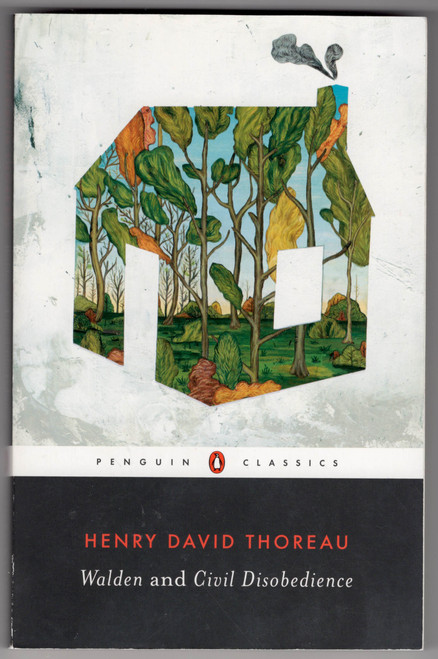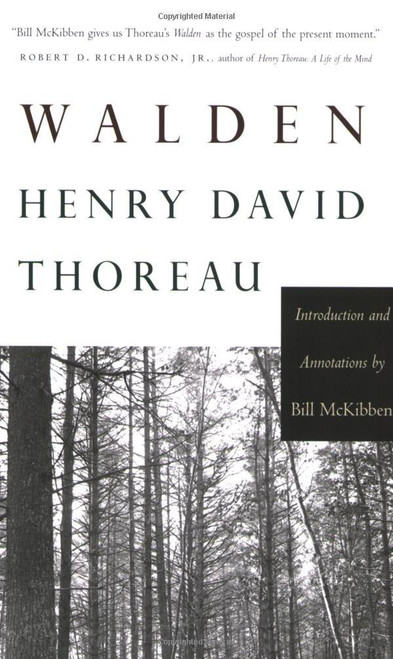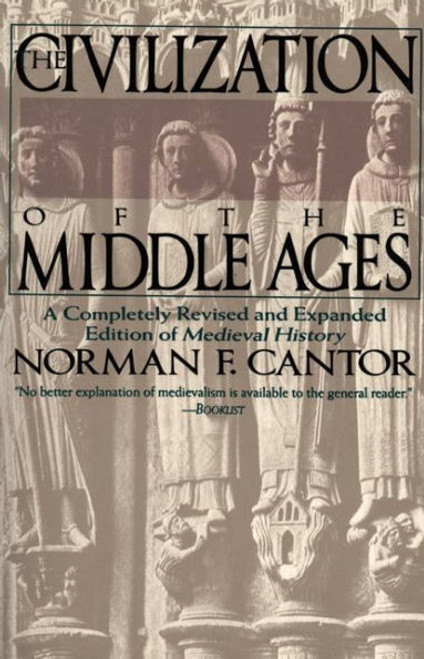Walden, a veritable treasury of American naturalism, teems with biting social observations about daily human life, not least among them:
"Our life is frittered away by detail....Simplify, simplify."
Henry David Thoreau built his small hut on the shore of Walden Pond in 1845. For the next two years he lived there as simply as possible, seeking zthe essential facts of lifey and learning to eliminate the unnecessary details--material and spiritual--that intrude upon human happiness. He described his experiences in Walden, using vivid, forceful prose that transforms his reflections on nature into richly evocative metaphors to live by. George Eliot's review of Walden singles out qualities that have attracted readers for generations, namely "a deep poetic sensibility," as well as Thoreau's own "refined [and] hardy mind." In a world obsessed with technology and luxury, Walden seems more relevant today than ever.
After being imprisoned for refusing to pay Concord's poll tax, Thoreau recounted his experience in an 1848 lecture, "The Rights and Duties of the Individual in Relation to Government." The speech, hardly noticed in Thoreau's lifetime, was later published as "Civil Disobedience." Today it is widely considered the single most important essay concerning the incumbent duties of American citizens and has inspired major civil movements around the world.
With an Introduction and Notes by Jonathan Levin
About the Author
Henry David Thoreau was a sturdy individualist and a lover of nature. In March, 1845, he built himself a wooden hut on the edge of Walden Pond, near Concord, Massachusetts, where he lived until September 1847. Walden is Thoreaus autobiographical account of his Robinson Crusoe existence, bare of creature comforts but rich in contemplation of the wonders of nature and the ways of man. On The Duty Of Civil Disobedience is the classic protest against government's interference with individual liberty, and is considered one of the most famous essays ever written.
Jonathan Levin is Dean of the School of Humanities and Professor of Literature and Culture at SUNY-Purchase. His research interests include nineteenth- and twentieth-century American literature and culture, modernism and modernity, and environmental studies. He is the author of The Poetics of Transition: Emerson, Pragmatism, and American Literary Modernism, as well as numerous essays and reviews.


![Walden, a veritable treasury of American naturalism, teems with biting social observations about daily human life, not least among them:
"Our life is frittered away by detail....Simplify, simplify."
Henry David Thoreau built his small hut on the shore of Walden Pond in 1845. For the next two years he lived there as simply as possible, seeking zthe essential facts of lifey and learning to eliminate the unnecessary details--material and spiritual--that intrude upon human happiness. He described his experiences in Walden, using vivid, forceful prose that transforms his reflections on nature into richly evocative metaphors to live by. George Eliot's review of Walden singles out qualities that have attracted readers for generations, namely "a deep poetic sensibility," as well as Thoreau's own "refined [and] hardy mind." In a world obsessed with technology and luxury, Walden seems more relevant today than ever.
After being imprisoned for refusing to pay Concord's poll tax, Thoreau recounted his experience in an 1848 lecture, "The Rights and Duties of the Individual in Relation to Government." The speech, hardly noticed in Thoreau's lifetime, was later published as "Civil Disobedience." Today it is widely considered the single most important essay concerning the incumbent duties of American citizens and has inspired major civil movements around the world.
With an Introduction and Notes by Jonathan Levin Walden, a veritable treasury of American naturalism, teems with biting social observations about daily human life, not least among them:
"Our life is frittered away by detail....Simplify, simplify."
Henry David Thoreau built his small hut on the shore of Walden Pond in 1845. For the next two years he lived there as simply as possible, seeking zthe essential facts of lifey and learning to eliminate the unnecessary details--material and spiritual--that intrude upon human happiness. He described his experiences in Walden, using vivid, forceful prose that transforms his reflections on nature into richly evocative metaphors to live by. George Eliot's review of Walden singles out qualities that have attracted readers for generations, namely "a deep poetic sensibility," as well as Thoreau's own "refined [and] hardy mind." In a world obsessed with technology and luxury, Walden seems more relevant today than ever.
After being imprisoned for refusing to pay Concord's poll tax, Thoreau recounted his experience in an 1848 lecture, "The Rights and Duties of the Individual in Relation to Government." The speech, hardly noticed in Thoreau's lifetime, was later published as "Civil Disobedience." Today it is widely considered the single most important essay concerning the incumbent duties of American citizens and has inspired major civil movements around the world.
With an Introduction and Notes by Jonathan Levin](https://cdn11.bigcommerce.com/s-ezptpblrxu/images/stencil/50x50/products/1113/1811/WaldenCivilBarnesHardcover__88572.1660081611.jpg?c=2)




